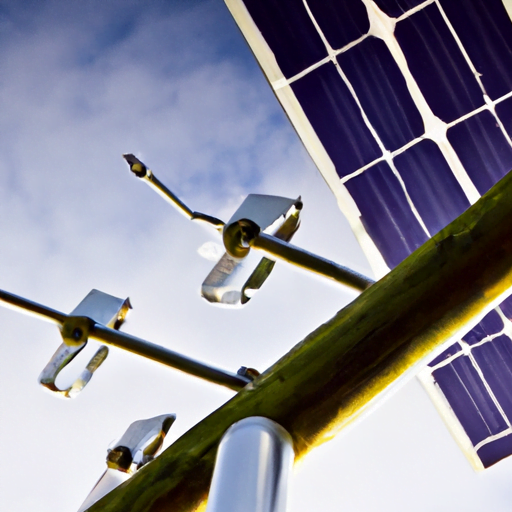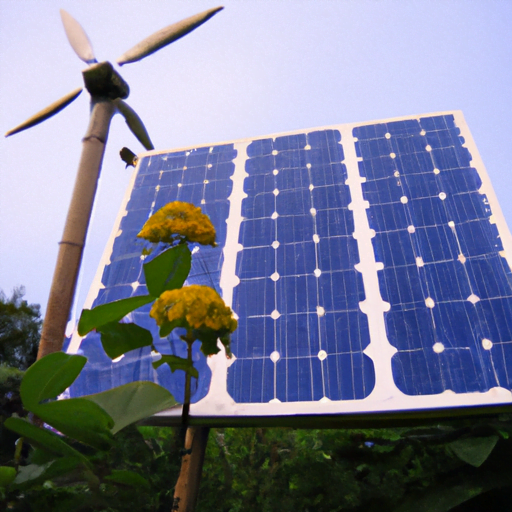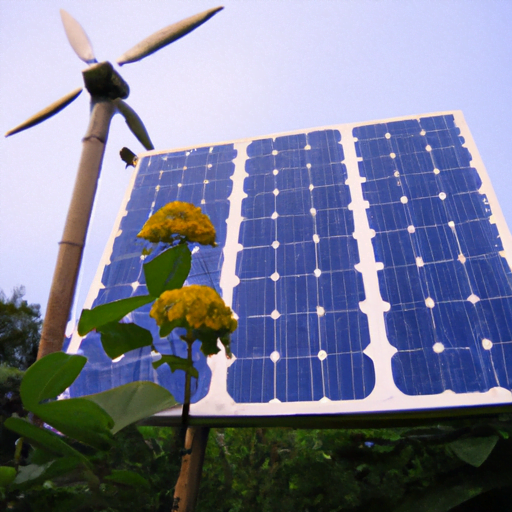Have you ever wondered how much it would cost to live off the grid in the UK? Well, you’re in luck! In this article, we will delve into the details of the cost of off grid living in the UK. From housing to utilities, we will break down the expenses you can expect to encounter if you decide to embark on this unconventional lifestyle. So, if you’ve been contemplating a simpler and more self-sufficient way of life, keep reading to discover what it might cost you.
When it comes to off grid living, there are several factors that can affect the cost. One of the biggest expenses is undoubtedly housing. Whether you choose to build your own eco-friendly home or renovate an existing property, the cost of materials and labor can add up. Additionally, you may need to invest in alternative energy sources such as solar panels or wind turbines to power your home. These initial costs can be significant, but they can also result in long-term savings on utility bills.
Speaking of utilities, living off the grid means relying on renewable energy sources rather than traditional power grids. While this switch can help reduce your carbon footprint, it also comes with its own set of costs. From purchasing and maintaining solar panels to storing excess energy in batteries, there are ongoing expenses associated with off grid living. However, these costs can often be offset by the money saved on monthly electricity bills.
In addition to housing and utilities, there are other factors to consider when calculating the cost of off grid living in the UK. These include water supply and waste management. Depending on your location, you may need to invest in water storage tanks or filtration systems, as well as composting toilets or septic tanks. These infrastructure expenses can vary depending on the size of your household and your water usage habits. Overall, living off the grid in the UK can be financially feasible, but it requires careful planning and consideration of the associated costs.

Overview of Off Grid Living
What is Off Grid Living?
Off grid living refers to a lifestyle in which individuals or families rely on renewable energy sources and are independent of public utilities such as water supply and electricity. It involves living without access to municipal services and instead, generating your own electricity, managing your water supply, and finding sustainable solutions for waste management. Off grid living is often chosen by those who want to reduce their environmental impact, achieve self-sufficiency, and live a simpler, more sustainable life.
Advantages of Off Grid Living
Living off the grid has several advantages. Firstly, it allows individuals to have complete control over their energy consumption and be less reliant on fossil fuels. By relying on renewable energy sources such as solar or wind power, off grid living significantly reduces carbon emissions and contributes to a greener and more sustainable future.
Secondly, off grid living provides a sense of freedom and self-sufficiency. You are not tied to the grid or dependent on external sources for your basic needs. With your own renewable energy systems and water supply, you have the ability to live independently and rely on your own resources.
Additionally, off grid living can save you money in the long run. While there are initial setup costs involved, such as installing renewable energy systems and setting up water supply systems, the lack of monthly utility bills can lead to significant savings over time.
Challenges of Off Grid Living
Despite its many advantages, off grid living also presents its fair share of challenges. One of the main challenges is the initial setup costs. Building or renovating a home, installing renewable energy systems, and developing water supply and waste management systems can be expensive.
Another challenge is the level of self-sufficiency required. Living off the grid often necessitates learning new skills, such as gardening, solar panel maintenance, and water treatment. It also requires being mindful of your energy and water consumption, as resources are limited.
Lastly, off grid living can sometimes be isolating, especially if you choose a remote location. Access to healthcare services, emergency assistance, and even social activities may be limited. It is important to consider these challenges and assess whether you are willing and able to overcome them before embracing off grid living.
Determining the Cost of Off Grid Living
Calculating Initial Setup Costs
The initial setup costs for off grid living can vary greatly depending on various factors such as location, size of the system, and the level of self-sufficiency desired. The first step in determining the cost of off grid living is to assess the specific needs of your household.
Annual Expenses of Off Grid Living
In addition to the initial setup costs, there are also annual expenses associated with off grid living. These include energy consumption and costs, water usage and costs, food production and expenses, maintenance and repairs, insurance and taxes, as well as healthcare and emergency services.
Factors Affecting Cost Calculation
Several factors can affect the cost calculation of off grid living. The size and type of the off grid system play a crucial role in determining the cost. A larger system with higher energy and water demands will generally require more investment.
The location and accessibility of the off grid property can also influence the cost. Remote locations might require additional expenses for transporting materials and equipment.
The level of self-sufficiency you desire will also impact the overall cost. If you choose to produce most of your food and rely heavily on renewable energy sources, the initial setup and ongoing expenses will be higher compared to a more moderate approach to off grid living.
Additionally, the choice of renewable energy sources and the climate and weather conditions of the UK will affect cost calculation. Some renewable energy sources, like solar power, might be more expensive to install but have lower ongoing maintenance costs.
Initial Setup Costs
Choosing a Location
Choosing the right location is crucial for off grid living. Factors such as access to natural resources, sunlight exposure, water sources, and zoning regulations need to be considered. It is important to find a location that is suitable for your specific off grid needs.
Land Acquisition
Once you have chosen a location, the next step is acquiring land. The cost of land varies greatly depending on its size, location, and accessibility. Conducting extensive research and working with reputable real estate agents can help find the right piece of land within your budget.
Building or Renovating a Home
Building or renovating a home off the grid requires careful planning and consideration. The cost will depend on the size, materials, and design of the home. It is recommended to work with experienced architects and builders who have knowledge of off grid construction techniques.
Installing Renewable Energy Systems
One of the significant costs of off grid living is the installation of renewable energy systems. Solar panels, wind turbines, and battery storage systems can be expensive upfront but will provide free electricity in the long run. The cost will depend on the size and capacity of the system.
Water Supply and Treatment
Off grid living often requires finding alternative water sources and implementing water treatment systems. The cost of drilling a well, installing a rainwater harvesting system, or implementing water filtration and purification systems should be factored in when considering off grid living.
Waste Management Systems
Finding sustainable solutions for waste management is crucial when living off the grid. Composting toilets or septic systems might be necessary, and the costs associated with their installation and maintenance should be considered.

Annual Expenses of Off Grid Living
Energy Consumption and Costs
Energy consumption is a significant expense in off grid living. Relying on renewable energy sources such as solar or wind power can save money in the long run. However, the initial investment in renewable energy systems can be high. It is essential to calculate your energy needs and budget accordingly.
Water Usage and Costs
Managing water usage is crucial in off grid living. Water sources such as wells or rainwater harvesting systems need to be maintained and treated. It is important to track your water usage and minimize waste to keep costs down.
Food Production and Expenses
Off grid living often involves growing your own food to achieve self-sufficiency. The cost of setting up and maintaining a garden or greenhouse, purchasing seeds or livestock, and other farming expenses should be taken into account.
Maintenance and Repairs
Maintaining an off grid system, including renewable energy systems, water supply systems, and waste management systems, requires regular maintenance and occasional repairs. Budgeting for these maintenance costs is important to ensure the longevity and efficiency of your off grid system.
Insurance and Taxes
Insurance and taxes are ongoing expenses that should not be overlooked. Depending on the location and size of your off grid property, insurance premiums and property taxes may vary. Researching and obtaining the appropriate insurance coverage and understanding tax obligations are vital for off grid living.
Healthcare and Emergency Services
Living off the grid, especially in remote areas, may limit access to healthcare services and emergency assistance. It is important to consider these factors and have a plan in place to address potential emergencies. Additionally, budgeting for healthcare expenses is essential, as living off the grid may require adopting a more self-sufficient approach to healthcare.
Factors Affecting Cost Calculation
Size and Type of Off Grid System
The size and type of your off grid system will greatly impact the cost calculation. A larger system that can support more energy and water needs will generally require more investment upfront. It is important to carefully assess your specific needs and goals when determining the size and type of your off grid system.
Location and Accessibility
The location and accessibility of your off grid property can affect costs. Remote locations may require additional expenses for transporting materials and equipment to the site. Consideration should also be given to the availability of natural resources and access to essential services.
Level of Self-Sufficiency
The level of self-sufficiency you desire will influence the overall cost of off grid living. If you choose to produce the majority of your own food and rely heavily on renewable energy sources, the initial setup and ongoing expenses will be higher compared to a more moderate approach.
Choice of Renewable Energy Sources
The choice of renewable energy sources can affect cost calculation. Solar power systems, for example, might be more expensive to install but have lower ongoing maintenance costs. It is important to assess your energy needs and research which renewable energy sources are most suitable for your situation.
Climate and Weather Conditions
The climate and weather conditions of the UK will impact the performance and efficiency of renewable energy systems. Areas with higher sunlight exposure or consistent wind patterns may yield more energy from solar panels or wind turbines. It is important to consider these factors when estimating the cost and benefits of off grid living.
Alternative Off Grid Living Options
Community-Sharing Ventures
For those who seek off grid living but prefer a more communal experience, community-sharing ventures can be a viable option. These ventures involve a group of individuals or families coming together to share resources, such as land, renewable energy systems, and food production. The costs and responsibilities are shared amongst the members, making off grid living more accessible to a wider community.
Off Grid Living Communities
Off grid living communities are intentional communities that prioritize sustainable living and self-sufficiency. These communities provide a shared infrastructure for off grid living, including renewable energy systems, water management systems, and food production areas. Joining an off grid living community can be a cost-effective way to embrace off grid living while enjoying the benefits of a supportive community.
Cooperative Living Arrangements
Cooperative living arrangements involve sharing resources and responsibilities with others who are interested in off grid living. This can include sharing land, buildings, and renewable energy systems. Cooperative living allows individuals to achieve self-sufficiency while also benefiting from shared costs and responsibilities.
Economic Considerations
Cost-Saving Benefits
While off grid living does involve initial setup costs and ongoing expenses, it can lead to significant cost savings in the long run. By generating your own electricity and managing your water supply, you eliminate or greatly reduce monthly utility bills. Additionally, growing your own food can significantly cut down on grocery expenses.
Long-Term Financial Viability
Off grid living can provide long-term financial stability. With proper planning and budgeting, the initial setup costs can be recovered over time through reduced monthly expenses. Additionally, being less reliant on external sources for essential needs, such as energy and water, protects against rising utility prices and inflation.
Return on Investment
Investing in renewable energy systems and other off grid infrastructure can result in a return on investment over time. The savings from reduced utility bills and the potential to sell excess energy back to the grid can help recoup the initial investment. Furthermore, the value of off grid properties may appreciate in the future as sustainability becomes increasingly important.
Factors to Consider Before Embracing Off Grid Living
Personal Preferences and Lifestyle
Off grid living requires a certain level of self-sufficiency, adaptability, and commitment. It is important to consider if this type of lifestyle aligns with your personal preferences and goals. Researching and visiting off grid communities or speaking with individuals already living off the grid can provide valuable insights into the reality of off grid living.
Skills and Knowledge Required
Off grid living often requires learning new skills and acquiring knowledge in various areas such as renewable energy, gardening, and water management. Assessing your current skill set and your willingness to learn and adapt is essential before embarking on off grid living.
Environmental Impact
One of the main motivations for off grid living is reducing environmental impact. It is important to consider the potential positive impacts of off grid living, such as reduced carbon emissions and conservation of natural resources. However, it is also crucial to be realistic about the environmental challenges and limitations of off grid living.
Social Considerations
Living off the grid can sometimes result in a more isolated lifestyle. Consider the potential impact on your social life, access to healthcare services, and emergency assistance. Additionally, the availability of educational opportunities for children and employment prospects should be taken into account.
Conclusion
The Real Cost of Off Grid Living
Off grid living in the UK requires careful consideration of both the initial setup costs and the ongoing expenses. Factors such as the size and type of off grid system, location, level of self-sufficiency, choice of renewable energy sources, and climate conditions will influence the overall cost. Additionally, alternative off grid living options such as community-sharing ventures and off grid living communities can provide more affordable options.
Is Off Grid Living Right for You?
Ultimately, the decision to embrace off grid living depends on your personal preferences, lifestyle, and financial situation. While it offers numerous advantages such as reducing environmental impact, achieving self-sufficiency, and potential cost savings, it also presents challenges such as initial setup costs, required skills and knowledge, and potential social limitations. It is important to thoroughly research and assess these factors before committing to off grid living in the UK.




